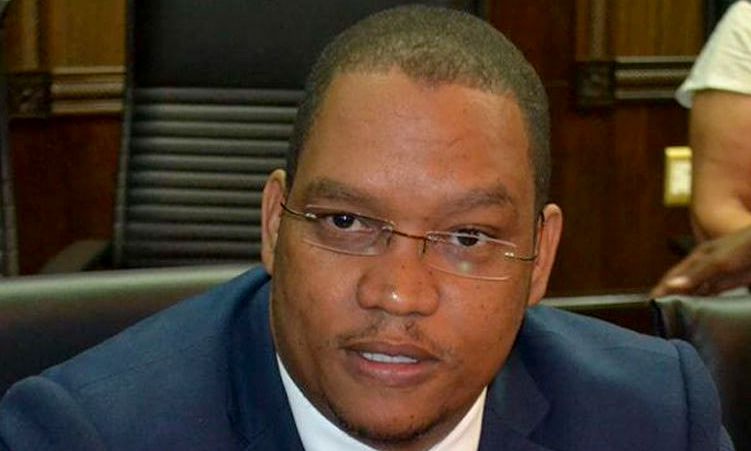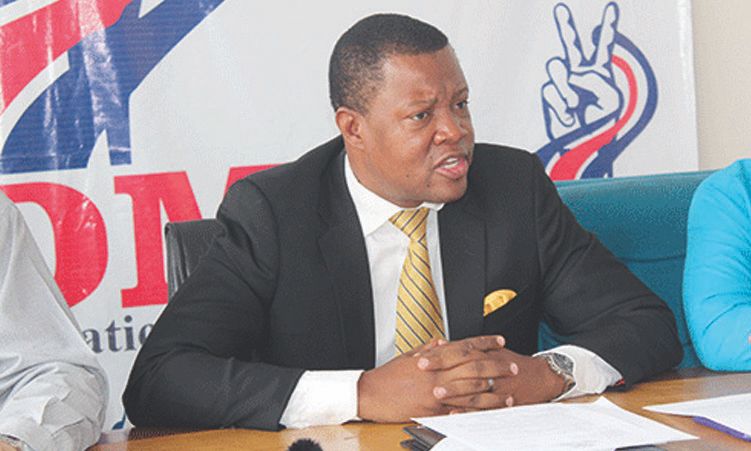Amid growing concerns over individuals facing the possibility of losing their homes due to loan defaults, the Bank of Namibia is contemplating the implementation of clear regulations on property repossessions.
Johannes !Gawaxab, the governor of the Bank of Namibia (BoN), has expressed apprehension about the current practice of commercial banks having the legal right to acquire properties through execution sales.
He believes such actions should be accompanied by a sense of responsibility towards all parties involved, including borrowers.
“The bank is considering issuing a determination to clarify the circumstances under which a banking institution can obtain a property sold through execution,” !Gawaxab says in response to a letter sent to the bank by Richard Metcalfe, a lawyer representing numerous defaulting home loan borrowers.
!Gawaxab highlights the practice of some commercial banks purchasing properties at a reduced cost during execution sales, potentially neglecting to credit the home loan debt with the amount obtained from the sale.
Under Rule 110(9) of the High Court, executions are conducted, and primary residential properties are auctioned based on a set reserve price of at least 75% of the municipal value of the property.
The deputy sheriff of the High Court oversees these executions.
“That said, it is advisable that relief for the concern raised should also be addressed in terms of the High Court rules,” !Gawaxab says.
He says loans are currently granted based on the market value of acquired properties.
However, the valuation referred to in the High Court is typically based on the local authority (municipal) valuation, which may not accurately reflect the market value of the property, he says.
“In Namibia, municipal valuations are periodically conducted after several years have lapsed.
“As such, the valuation criteria may not take into account the actual market value of the property, causing a shortfall when properties are sold,” !Gawaxab says.
He advises that clients keep their properties’ valuation current and place them before courts at the appropriate stages.
RELIEF
!Gawaxab’s remarks come at a time when numerous legal experts, businesses and civil society are advocating that banks should show leniency in the process of auctioning homes belonging to loan defaulters.
Irene Simeon-Kurtz, the president of the Black Business Leadership Network of Namibia, recently highlighted the mounting strain on households caused by market forces.
Consequently, she said, homeowners are facing escalating challenges in meeting their mortgage obligations.
“You can’t apply normal rules during an economic crisis. Like it or not, the Covid-19 pandemic and economic downturn messed everything up,” Simeon-Kurtz said.
Metcalfe in his letter called on the BoN to push for the implementation of the EasySell programme, which is currently conducted by Standard Bank South Africa.
“Justice and fairness cry out in Namibia for such a programme to be made compulsory in our country to avoid the present scenario where commercial banks are enriched by the economic woes and misery of home loan debtors,” he said.
!Gawaxab, acknowledging the success of the EasySell programme in South Africa, urges interested individuals to engage with commercial banks to explore similar offers available.
Meanwhile, the BoN on 1 April 2020 implemented measures allowing repayment arrangements and moratoriums to clear arrears on accounts.
Since the regulation came into effect, banks have received a staggering total of 377 875 applications for holiday relief, of which 370 816 were approved.
According to the central bank, among the sectors that largely benefited from these relief measures, individuals stood out with a total of 228 887 approved facilities.
Following them closely were the real estate and business services sector, as well as trade and accommodation entities.
The value of loans approved under the moratorium period has reached N$5,8 billion.
Stay informed with The Namibian – your source for credible journalism. Get in-depth reporting and opinions for
only N$85 a month. Invest in journalism, invest in democracy –
Subscribe Now!








